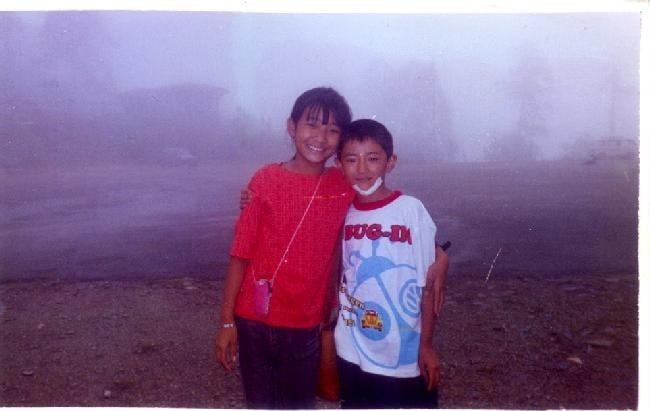About a year ago, I started writing blogs about our beautiful country of Bhutan. I wrote about the Wangchuck Dynasty and Guru Rinpoche, both of historical significance to the country, about the arrival of television in Bhutan, and a blog titled The Diverse People of Bhutan. All of this was done in an attempt to showcase Bhutanese culture. However, in the process, I realized that Bhutanese culture can be as simple as a memory of me and my cousins playing in the backyard, which is also universal. That Bhutanese culture goes beyond the figures who shaped and continue to shape our country. Last night, as I locked my car for the second time I heard the same group of kids who were playing outside a minute ago cry, stirring my own memory from childhood when inevitably one of us would cry too, the weakest, me.
What Constitutes as Bhutanese
In 2021, I spent 6 months with over 60 teacher graduates from across Bhutan, as part of a teacher training programme. There were many distinctions between me and my peers. The first being that I didn’t have a teaching degree, I owned a car albeit a cheap one, and I had studied abroad. At the time, I never thought about these differences but I believe they played a role in the way each one of us moved around, in the way we related to each other. I always sensed an indifference, a nonchalant attitude from my peers towards me, who I thought were epitomes of what it meant to be pure Bhutanese. I envied them, their sense of belonging, and the way they moved with ease, with the rest of the cohort. They were also really rooted. Following this, I remember dating someone from Paro, (home to both my families and more pastural than Thimphu) in the quest to feel more belonged. I even began listening to Bhutanese songs, both old and new. This surprised one of my co-workers who was convinced that I was indeed dating someone from Paro. And to this same co-worker I confessed that I felt I had been romanticizing being home. I did this as I looked at the night view of Paro Rinpung Dzong.
During the training, our mentor, who was Kirgis, pointed out that what constitutes as Bhutanese doesn’t need to be fixed. It took her seconds to say this but years for me to truly register it. After spending the last few months abroad and returning home, I’ve developed new relationships here, and I no longer care for that label. I am learning to accept that each of us, in our own way, is Bhutanese. Nobody should be given the authority to classify something or someone as Bhutanese or not, and should we ever measure people’s ethnic purity?


